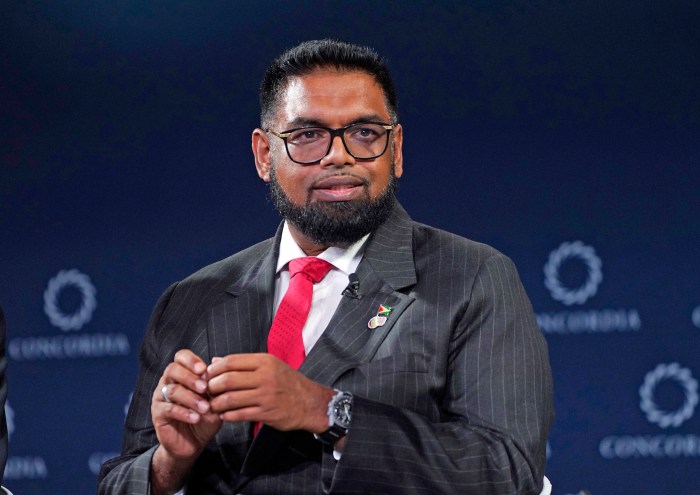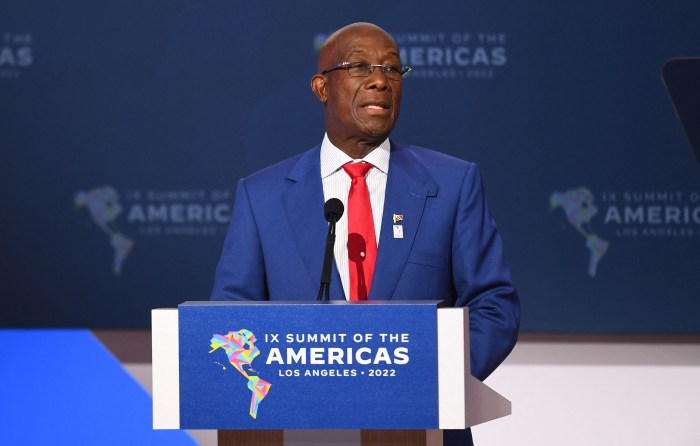Trinidad and Tobago will celebrate its 52nd political independence from Great Britain on Sunday, Aug. 31, 2014.
This year will be a historic one for the country as Prime Minister Kamla Persad-Bissessar is moving to implement constitutional reform for what she said is the People’s Partnership (PP) administration policy agenda for development and progress.
The Constitution Amendment Bill 2014 proposes a term limit for the office of the prime minister, a recall provision and a runoff poll in elections for the House of Representatives.
The prime minister is proposing the second ballot runoff voting to change the way MPs are elected to strengthen the democracy in a way that makes the power of the people supreme.
The runoff poll is proposed so that each member of the House of Representatives will only become such a member if he or she obtains more than 50 percent of the votes cast in a constituency.
This means that where one of the candidates did not obtain more than 50 percent during the the first poll at an election, a second poll will be held between the top two candidates within 15 days.
The prime minister said in such a system, the voices of the minority would be respected even as effect is given to the will of the majority and every single vote would matter and count as the possibility of voting a second time will breathe new life and meaning in the democratic process.
This is a move from the Westminster system of first past the post system for an election.
The Bill also proposes fix dates of Parliaments so the dates for the general election will be known.
Trinidad and Tobago would be the first Westminster-style democracy that will be adopting the right of recall. T&T will become country number 92 with term limits for the prime minister.
The propose legislation has some unique features in the 54-member Commonwealth of Nations such as the right to recall elected MPs.
The contentious amendment bill, which was passed in the House of Representatives is now being debated in the Senate and will require the vote of the independent senators to approve the bill.
But while the prime minister seeks to amend the constitution, which will give a significant new meaning to multi-party electoral democracy, Trinidad and Tobago continues to maintain its colonial ties with Britain’s Privy Council as its final court of appeal.
The Caribbean Court of Justice (CCJ) established an appeal court in 2001 with headquarters in Port of Spain, Trinidad for all legal matters- civil and criminal. Further, it is empowered with “original jurisdiction” for settling trade and other disputes.
While several CARICOM countries have joined the CCJ, Trinidad and Tobago is yet to access it as its final court of appeal.
Trinidad and Tobago became the second English-speaking country after Jamaica in 1962 to end its administrative colonial ties with the Great Britain.
Trinidad and Tobago gained its independence from Great Britain on Aug. 31, 1962, the Union Jack (British flag) was lowered and the Trinidad and Tobago flag was raised for the first time. Bells tolled and sirens ran out to herald the birth of a newly independent nation.
Prime Minister Dr. Eric Williams was the architect of T&T’s independence.
The first Independence Day was marked by more than a week of activities and events across the country from Aug. 28 to Sept. 5, 1962.
Prior to Independence, Trinidad and Tobago was a British colony with the Queen of England as the Head of State. The event was the final stage in a long road to self-government.
Today, Independence Day is celebrated with military-style parades held at the Queen’s Park Savannah, Port of Spain and in Scarborough, Tobago. In Trinidad, the parade is inspected by the head of state, who from 1962-1976 was the governor general — the Queen’s representative in Trinidad and Tobago.
When Trinidad and Tobago achieved Republican status in 1976, the president then assumed this role.
The evening is usually marked by the presentation of National Awards in a ceremony held at the President’s House. The awards, which were first presented in l969, honor outstanding achievements of citizens of Trinidad and Tobago in various fields.






















